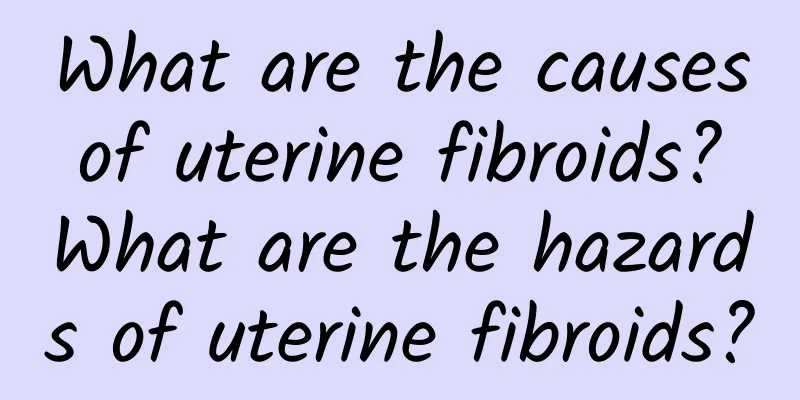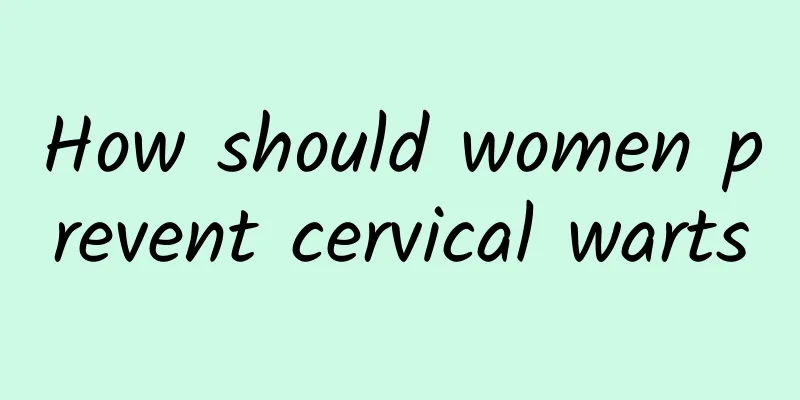Common knowledge about cervical warts

|
The reason why people are afraid when talking about cervical warts is because the harm of cervical warts is very serious. The harm of cervical warts directly threatens the health of the patient and the health of friends around them, so when suffering from cervical warts, it must be treated in time. Cervical condyloma often coexists with other sexually transmitted diseases. Many data indicate that this disease is related to sexual life and sexual hygiene. At least 65% of patients are the result of sexual activity. Condyloma can invade any part of the vulva. When the vulva is damaged, infection often begins at that part through sexual intercourse. For women, the lesions can easily spread to the area around the anus. Most lesions are asymptomatic at the beginning, with occasional itching and bleeding due to scratching. Condyloma acuminatum occurring in the vulva does not affect conception if the condyloma is small and scattered. Unless the condyloma is large, close to the vaginal opening, and has foul-smelling secretions, causing psychological disorders or loss of libido, it can cause temporary infertility. When the condyloma on the cervix gathers into a mass, blocks the uterine opening, and affects the movement of sperm, it will affect conception, but it is all temporary infertility, and pregnancy can still be achieved after recovery. Cervical condyloma is initially millet-sized, soft, light red warty papules, which gradually increase in size, with an uneven surface showing papillary, mushroom-like or cauliflower-like shapes, and may have pedicles. Most cervical HPV infections are subclinical, and the lesions are generally small. They can only be detected under a colposcope after applying 5% acetic acid. They are fuzzy whitish or slightly shiny white lesions with irregular contours and serrated, multi-faceted or feather-like edges. Satellite lesions can spread beyond the transition zone, and a capillary network can still be seen. Since cervical condyloma is not only a cause of cervical infertility, but also a cause of female infertility caused by sexually transmitted diseases, it has a great impact on female infertility. However, experts say that as long as the patient has a positive attitude and actively participates in treatment, it will definitely be cured. After being cured, you can still successfully get pregnant. It is recommended that patients still pay attention to it and do not blindly treat it. |
<<: What are the types of cervical warts?
>>: Early pictures of cervical warts
Recommend
Why do women have itchy vulva? To tell you the truth: it may be related to these major diseases
In the gynecology clinic, I often encounter patie...
Will cervical erosion affect pregnancy? Women must know what cervical erosion is.
Many women are told that they have cervical erosi...
Which hospital is good for treating uterine fibroids?
Which hospital is good for treating uterine fibro...
How to prevent premature ovarian failure
How to prevent premature ovarian failure? Ovaries...
What are the symptoms of cervical erosion? Four common symptoms of cervical erosion
In the early stage of cervical erosion, patients ...
Does a 1 cm endometrial polyp require surgery?
Whether a 1 cm endometrial polyp requires surgery...
What are the symptoms of chronic adnexitis in women?
The symptoms of adnexitis are not obvious in the ...
Does vaginitis affect pregnancy?
Will vaginitis affect pregnancy? Whether vaginiti...
Symptoms of early menopause
There are several manifestations in the early sta...
What are the symptoms of ovarian cysts? What are the dangers of ovarian cysts?
What are the symptoms and dangers of ovarian cyst...
Is the cost of treating congenital absence of vagina expensive?
Is the cost of treating congenital absence of vag...
How can women prevent endometrial tuberculosis?
The cause of endometrial tuberculosis is relative...
Experts explain what viral cervicitis is
Many female friends may be unfamiliar with viral ...
Patients with dysmenorrhea should combine their treatment methods as soon as possible
The occurrence of dysmenorrhea will damage the he...
What does a positive ovulation test before menstruation mean?
Ovulation test strips can only show correct resul...









